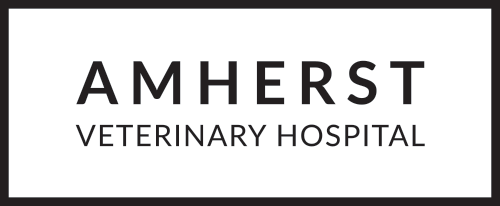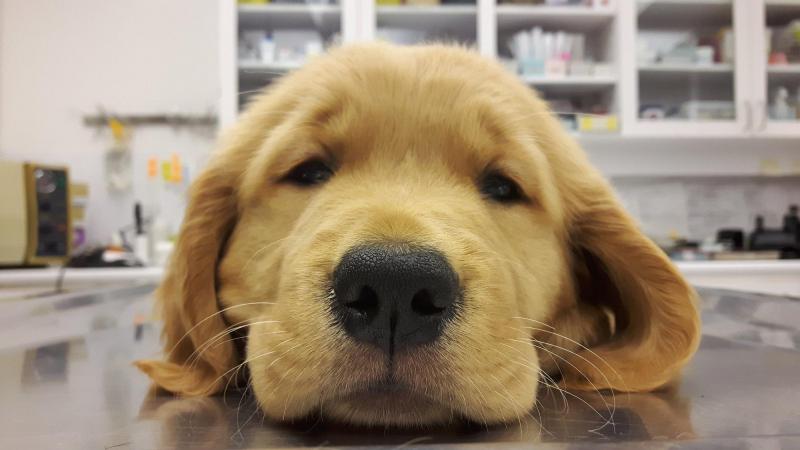Parvovirus has recently made the news as there was an increase in dogs diagnosed with the infection on Vancouver Island in early January. Here is the recent news article on the subject. Symptoms of the disease include lack of energy, vomiting and diarrhea. It is a virus that destroys the lining of the intestinal wall which leads to massive diarrhea or bacteria from the intestine being able to enter other parts of the body. Severe dehydration or septic shock can become fatal if the puppy is not treated aggressively in the early part of the disease.
Parvovirus is not a new virus. The virus was first discovered in 1967 and was a relatively innocuous virus, but by 1978, a new aggressive variant of the virus, CPV-2, appeared in North America and rapidly spread from there. This virus is shed in very large amounts in infected dogs and is very hardy in the environment, meaning it can survive in a wide range of temperatures and conditions. Due to these factors, the virus is considered to be present in every environment worldwide. Puppies are most susceptible to the disease because they have not developed any natural immunity to the virus.
Luckily, highly effective and safe vaccines are available against this common and life threatening virus. The best prevention against this disease is a series of vaccines given at the correct times. The first vaccine should be given when the puppy is weaned, around 8 weeks of age, and repeated every 3 to 4 weeks until the puppy is at least 16 weeks of age (usually a series of 3 vaccines all together). Since parvovirus is shed in the feces, puppies that have not completed their series of shots should be kept away from areas frequented by a lot of other dogs where the fecal load may be high. Such places would include dog parks and beaches, popular hiking trails and dog day care. That said however, parvovirus is ubiquitous in the environment and attempting to completely shield a puppy from exposure is completely futile and not recommended as socialization for puppies is equally important for their long term health. A reasonable balance would be for pet owners to take their puppies for leash walks on side walks where the fecal burden is low, and to set up plays with healthy, vaccinated dogs.
In Vancouver where there are few stray dogs on the street and most pet owners are vaccinating their pet against parvovirus, the incidence of the disease is low. At a busy, multi vet clinic like Amherst Veterinary Hospital, parvovirus is seen only once or twice a year. Parvovirus is in the environment and remains a highly contagious and virulent. That has not changed since its discovery. When there is a localized outbreak of the disease it involves young, unvaccinated dogs. Vaccination is the key to preventing outbreaks. As long as the majority of pet owners continue to choose to vaccinate their dogs against parvovirus, we do not expect to see major outbreaks such as the one in the 1970s that killed many dogs.
Dr. Loretta Yuen D.V.M

